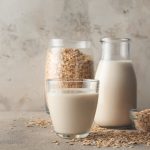
The U.S. Food and Drug Administration is warning consumers about risks of using compounded versions of the drug ketamine, often taken for psychiatric disorders. Compounded products are not evaluated by the FDA for safety and effectiveness. They’re also not regulated like approved drugs, so they present a greater risk. “Although compounded drugs can serve an important medical need for certain patients when an FDA-approved drug is not medically appropriate, they also present a risk to patients and should only be used under the care of a health care provider,” the FDA said in a news release. It offered an example of a concerning case reported about a patient in April. That person had taken compounded oral ketamine outside of a health care setting for the treatment of post-traumatic stress disorder (PTSD). The result was slowed breathing and a ketamine blood level that appeared to be twice what a person would typically receive as anesthesia, the FDA said. Patients are increasingly interested in taking compounded ketamine products, including oral formulations, for mental health disorders including depression, anxiety, PTSD and obsessive-compulsive disorder, according to the FDA. Known safety concerns associated with the drug are abuse and misuse, psychiatric events, increases in blood pressure, slowed breathing and lower urinary tract and bladder symptoms. In the FDA-approved version of ketamine, the expected benefit outweighs these risks when used at… read on > read on >





































